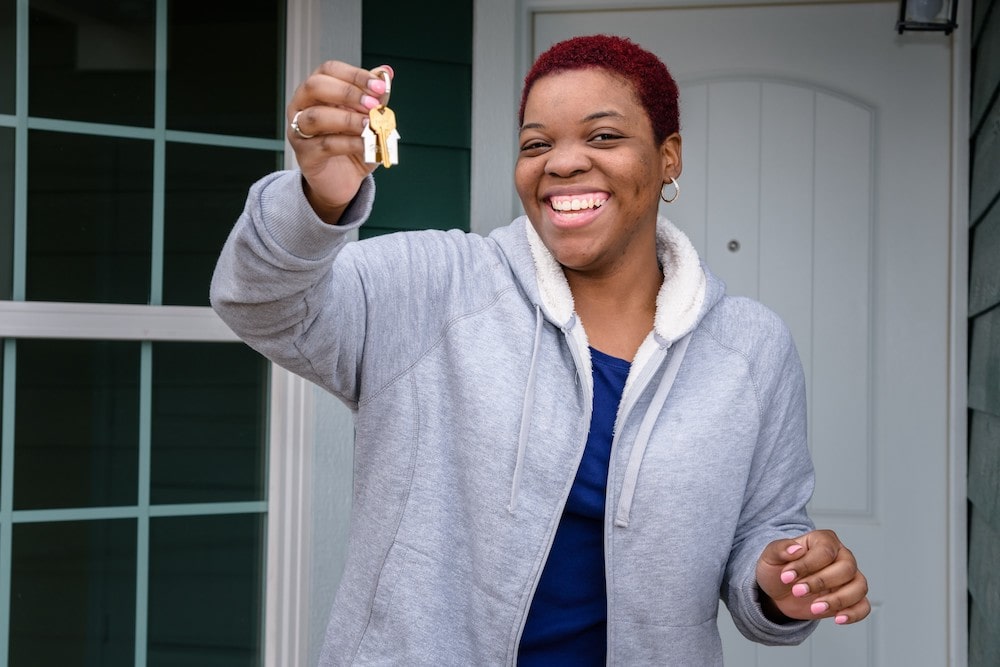5 Financial Tips for New Habitat Homeowners
Most of our Habitat homeowners are first-time homeowners! Sometimes they’re the first person in their family to have ever owned a home. This means that there’s often a learning curve that has to be overcome when it comes to the financial side of homeownership. These are a few of our favorite tips and tricks that we’ve gathered from old Habitat owners about how to stretch your home budget and take care of your new home!

#1 Start Building Up Your Emergency Fund
As a homeowner, one of the first things you learn the hard way is that things go wrong. A storm will damage your roof, your plumbing will get clogged, or the AC will start making a weird noise. When that happens, you need to have savings to help pay for the repairs or the insurance deductible. Otherwise, you could be looking at a financial disaster.
Start by putting as much away as you can afford every month. Once you hit about $3-5k dollars, you can focus on other savings goals and just replace it as it’s used up. If you’re worried about being able to pay for major repairs, consider a homeowner’s warranty, which is like health insurance for your home. You just have to pay copays for every covered repair visit.
#2 Fix Small Issues Early On
If you want to save money, keep up with your home maintenance and make small repairs as soon as you notice they need to be done. It may seem counterintuitive that spending money on materials or labor for repairs could save you money, but it really does. The longer you let a problem go on, the more damage it causes and the more expensive repairs will be.
For instance, if you notice a small leak and repair it, you may spend $150 dollars on materials and the roofing company’s time. But if the leak is ignored for months or years, it can grow larger, cause permanent damage to large sections of your roof and drywall, and lead to mold and mildew infestations. That kind of damage has a price tag of several thousand dollars.
So save time and money by keeping up with small maintenance items on a regular basis!
#3 Pay Your Mortgage On Time
Many banks have a grace period of about 10 days on mortgage payments to accommodate those on different paycheck schedules. But as soon as you pay late, you’re hit with late fees, notes in your account, and possibly even a mark against your credit report.
In the worst cases, banks can foreclose on your home even if you’re only two months late on your mortgage. This means you could lose the home you worked so hard for and invested in so much.
Tend to forget dates easily? Avoid fees and foreclosures by setting up an automatic draft for your mortgage from your bank account. That way, you don’t have to worry about whether or not it’s paid on time.
#4 Pay a Little Extra
Another fantastic tip for new homeowners is making “principle payments” on your mortgage. When you pay your mortgage, a portion goes towards the interest you owe, and a portion goes towards the actual balance–or the principle.
Over time, you can save yourself thousands of dollars in interest payments and build more equity in your home by making principle payments along with your regular mortgage payment. Even just rounding up or paying an extra $50 a month can make a huge difference in how quickly your home is paid off and how much interest you’ll have to pay.
Just make sure that you tell your bank specifically that you want the extra to go towards the principle. Otherwise, they’ll just make a regular payment and that money will go towards next month’s payment instead of the final total.
#5 Watch Your Utilities
Many people are surprised by their utility bills when they move into their first home. Apartment complexes are often significantly cheaper because the space is smaller and the cost is divided across the property.
Especially for the first few months, just make sure you’re watching the utilities to get an average baseline so you can appropriately budget. If they’re too high, make sure you’re turning out the lights when you leave, leaving the thermostat at a reasonable temperature, and investing in energy-saving appliances.










